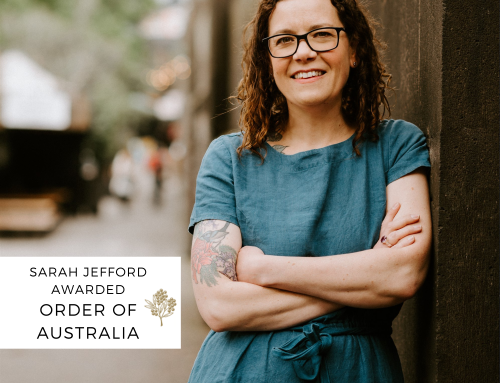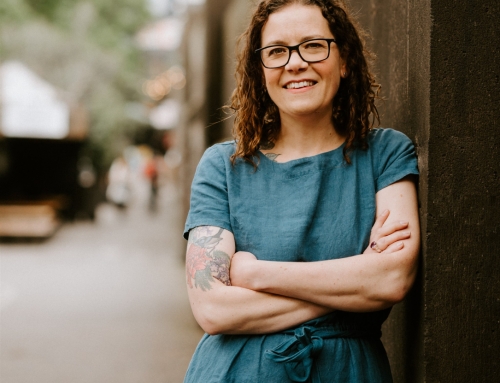How Can I Become A Surrogate?
Have you finished your own family, and considering helping someone else grow theirs? Have you had good pregnancies and happy to experience childbirth again? Read below to find out about the processes for surrogacy in Australia and qualifying to be a surrogate.
Firstly, a few facts:
- Surrogacy in Australia is altruistic, which means surrogates are not paid to carry a baby for someone else.
. - The intended parents must qualify for surrogacy, which means they must have a social or medical need for surrogacy.
. - Once a surrogate and intended parents have agreed to enter into a surrogacy arrangement, they must complete counselling and obtain legal advice before attempting to conceive a child.
. - You do not need to live in the same State as the intended parents to be their surrogate.
. - After the birth, the intended parents can take custody of the baby, and then they apply for a Parentage Order which transfers parentage from the surrogate and her partner, to the intended parents.
Want to know more? Here’s a few things to know about being a surrogate:
- In most States, you need to be over 25 years old to be a surrogate. There are no legal restrictions on the upper age limit, but clinics often apply an upper age limit of 52 or 53, which is the average age of menopause. A post-menopausal woman can be a surrogate, so it is worth speaking to a medical practitioner about your situation if you are over 47 or post-menopausal.
. - In many States, you need to have had your own child before you can be a surrogate. This is not a legal requirement in NSW or Queensland, but might be a barrier for the clinic.
. - You don’t have to be married or defacto yourself – there are many single women who are surrogates. Just like all surrogates, you should consider the support systems you have in place for yourself and your family before proceeding.
. - If you have been married and are now separated, you should consider finalising your divorce before entering into a surrogacy agreement. You need to talk to your lawyer, because being married at the time of entering into the arrangement can have implications for the surrogacy agreement and the Parentage Order.
. - The surrogacy laws that apply will be those of the State where the intended parents live. If you live in Queensland and your intended parents live in New South Wales, the New South Wales surrogacy laws apply. You should get some advice about your circumstances before proceeding – Sarah offers free initial consults for future surrogates (follow the link below to book in, or read more here).
. - You can be a gestational surrogate – using an egg from the intended mother or a donor, or a traditional surrogate, using your own egg. There are different considerations and laws that apply to both, and you should get advice before proceeding with either option.
What about my health?
Many surrogates will self identify that they are fit and healthy and able to carry another pregnancy. Most of the time, that’s a good start. But you will eventually need to speak to a doctor and obtain clearance before proceeding – in some States and clinics, there are specific requirements that the doctor must sign off on you being a surrogate. You can start the conversation with your GP, to see if there’s any physical reason why you should not carry. There are no laws that say you can or cannot be a surrogate based on your physical health, but the doctor will consider your past pregnancy and birth history, and your overall health, and your age and BMI. Some doctors may ask that you are under a certain BMI before trying to fall pregnant. Other health conditions like epilepsy or diabetes need consideration but might not disqualify you if the doctor is satisfied that you and the baby will not be negatively impacted.
Will my mental health history stop me from becoming a surrogate?
Many surrogates worry that a previous history of mental ill-health will disqualify them from being a surrogate. The reality is that most likely, a history of anxiety or depression will not disqualify someone, but it is very much an individual decision and one to be made with your support system and the counsellor. The professionals involved will want to know that you have a good support system and access to mental health support during the process and beyond. Minimising your previous history or current mental health will place you at risk, and my advice is to be open and upfront and prepare yourself for the times when you need support.
Can I have a homebirth?
It’s not uncommon for a surrogate to have specific ideas about how she might birth a surrogacy baby. Some will need more medical intervention than others, and some will have a preference to homebirth rather than attend a hospital – see for example, Michelle’s story on the Podcast. There are no laws about where you can birth a surrogacy baby. The decision really is for the surrogate, her partner, and the intended parents to make together, with their chosen medical practitioner. If a surrogate is clear on her own intentions, she needs to be upfront with any potential intended parents so that they can make an informed decision that’s right for them. Being aligned in values is more important than where the birth might take place.
What about breastmilk and feeding?
Surrogates are often interested in whether they will provide breastmilk or feed the baby, and whether intended parents have any expectations about this. Milk and feeding decisions are for the team to make together; rest assured there is no wrong answer. You can read more about milk and feeding of the surrogacy baby if you’re interested in understanding more.
Like everything in surrogacy, it is important to do your research before jumping in. You might like to read about other surrogate’s stories, to understand their motivations and experiences.
Being a surrogate has been an amazing experience for me, and I’m happy to talk to you for free about the process and my experience.
How do I find Intended Parents?
Good question? There are many more intended parents than there are women willing to carry a baby for them. Read more about how intended parents find surrogates.
Intended parents have often been on a long road and may be upset to receive an offer from a surrogate that is subsequently withdrawn because of a medical issue. Listen to the Podcast, download the free Handbook, and get in touch if you have any questions.








